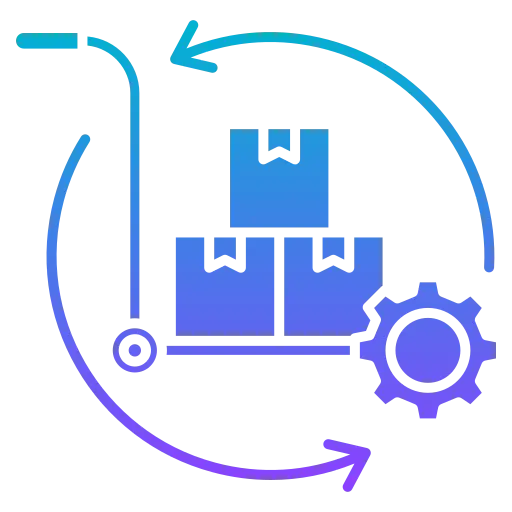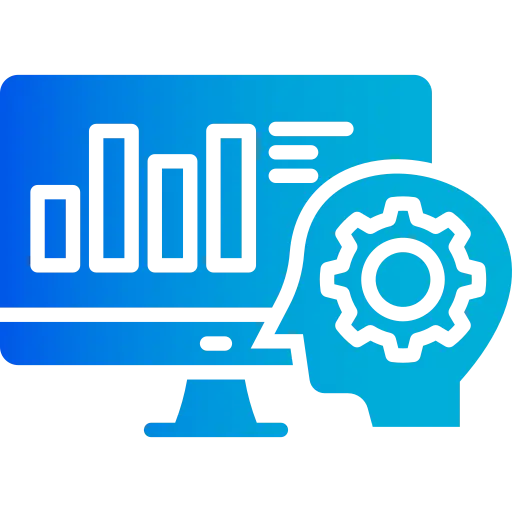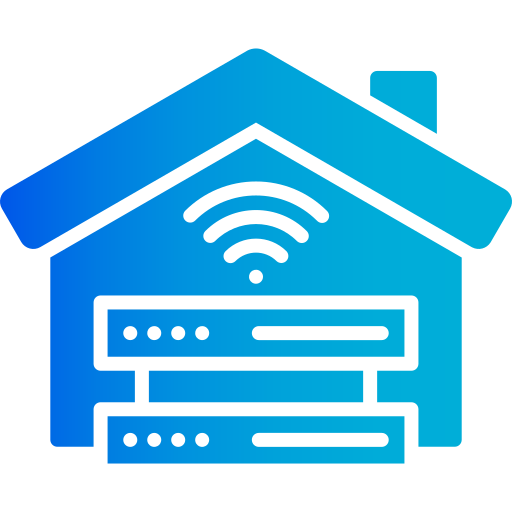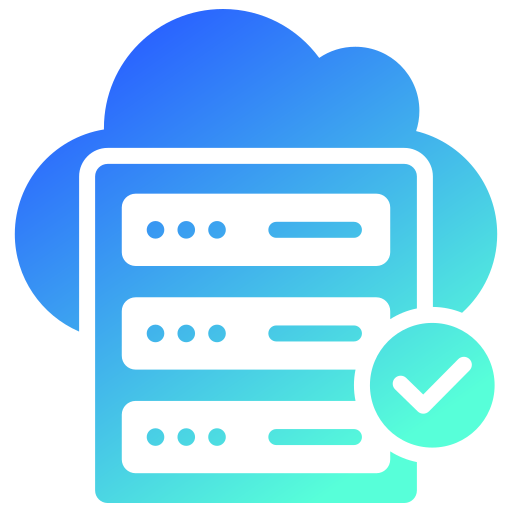What is ERP? A Complete Guide for Process Manufacturers
Understand how ERP connects finance, manufacturing, inventory, quality, and compliance into one system.
Enterprise Resource Planning (ERP) is an integrated software system that centralizes and automates core business processes using a single, shared database in real time.

In This Article
What is ERP? A Practical Guide for Process Manufacturers
ERP software has come a long way from being just an accounting or record-keeping tool. Today, for manufacturers—especially those in food, pharmaceuticals, chemicals, nutraceuticals, cosmetics, and other process industries—ERP acts as the central nervous system of the business.
It brings people, processes, and data together on one platform so teams can work smarter, faster, and with far greater control.
This guide breaks down what ERP really is, how it works, why it matters for manufacturers, and why an industry-specific ERP like BatchMaster delivers far better results than generic systems.
What Is ERP (Enterprise Resource Planning)?
An ERP system is a set of integrated applications that an organization can use to collect, store, manage, and interpret data from many business activities”. — Gartner Research
At its simplest, Enterprise Resource Planning (ERP) is an integrated software system that centralizes and automates core business processes—such as finance, manufacturing, inventory, quality, and supply chain—using a single, shared database in real time.
This means ERP does much more than record transactions. It actively supports how a business plans, executes, tracks, and improves its operations.
Because everything runs on one centralized database, everyone works with the same real-time data. The result is fewer errors, faster decisions, and better visibility across the organization.

What ERP Really Does in Practice
An ERP system:
- Integrates core business processes into one unified system
- Standardizes workflows so teams follow consistent, bestpractice processes
- Provides realtime visibility into operations, finances, and performance
- Eliminates duplicate data entry and manual reconciliation
- Eliminates duplicate data entry and manual reconciliation
- Creates a single source of truth for decision making
For example, when a production order is created in ERP, the system automatically checks material availability, updates inventory levels, records quality data, calculates costs, and reflects the financial impact—without anyone reentering the same information.
ERP as a Business Backbone

Think of ERP as the backbone of your organization. Every department relies on it:
- Finance uses ERP to track costs, margins, and compliance
- Operations rely on it to plan and control production
- Quality teams depend on it for inspections, traceability, and audits
- Sales teams use it to manage orders, pricing, and delivery commitments
Because all teams work from the same data, ERP reduces misunderstandings, delays, and errors that often occur when systems don’t talk to each other. a, calculates costs, and reflects the financial impact—without anyone reentering the same information.
Why ERP Is Especially Important for Process Manufacturers
For process manufacturing industries—such as food, pharmaceuticals, chemicals, and nutraceuticals—ERP plays an even bigger role.
These businesses must manage:
Batch and lot traceability
Formulas and recipes
Expiry dates and shelf life
Quality checks at multiple stages
Strict regulatory and compliance requirements
A generic business system cannot handle this level of complexity reliably. ERP designed for process manufacturing ensures that every batch, ingredient, quality result, and compliance record is accurately tracked and linked across the entire lifecycle.
In short, ERP is not just a system of record—it is a system of control, visibility, and growth for modern manufacturing businesses.
The result is fewer surprises, better decisions, and the ability to scale operations with confidence.
Why ERP Matters More Than Ever for Manufacturers
As manufacturing businesses grow, manual processes and disconnected systems start to slow everything down. Common challenges include:
- Conflicting data across departments
- Poor production visibility
- Inventory mismatches
- Compliance risks
- Delayed financial reporting
ERP addresses these issues by creating a single source of truth for the entire business. For process manufacturers, ERP is not optional—it’s essential. Managing batch production, traceability, formulations, quality checks, and regulatory compliance simply isn’t possible at scale without a system designed for these complexities.

How Does an ERP System Work?
At its core, ERP uses a modular design built on a shared database.
Each module handles a specific business function, but all modules are connected. When information is updated in one area, it automatically updates everywhere else.
A simple example:
- A production order is released
- Raw materials are consumed from inventory
- Quality checks are recorded
- Costs are posted to finance
- Finished goods become available for sales
Everything happens in real time, without duplicate data entry or manual reconciliation.
Key ERP Modules Explained

Financial Management
Handles general ledger, payables, receivables, budgeting, and statutory reporting.
Why it matters: You get accurate financials, better cost control, and easier compliance.

Inventory and Warehouse Management
Tracks stock levels across locations, manages batches and expiry dates, and supports lot traceability.
Why it matters: Less wastage, fewer stockouts, and better inventory planning.

Manufacturing and Production Management
Supports production planning, scheduling, batch processing, and yield analysis.
Why it matters: Improved production efficiency and better use of capacity.

Formula and Recipe Management
Manages versioncontrolled formulas, scalable batch sizes, substitutions, and R&Dtoproduction handover.
Why it matters: Consistent product quality and faster product launches.

Quality Management and Compliance
Covers inspections, nonconformances, CAPA workflows, audit trails, and documentation.
Why it matters: Simplifies compliance with FDA, FSSAI, GMP, ISO, HACCP, and global regulations.

Procurement and Vendor Management
Manages purchase requests, orders, vendor approvals, pricing, and material planning.
Why it matters: Better supplier control and lower procurement costs.

Sales and Distribution
Handles order processing, pricing, dispatch planning, invoicing, and delivery tracking.
Why it matters: Faster order fulfillment and improved customer experience.

Reporting, Analytics, and Business Intelligence
Provides dashboards, KPIs, and realtime operational insights.
Why it matters: Leaders can make decisions based on facts, not assumptions.
The Real Benefits of ERP for Process Manufacturers
Generic ERP systems often fall short when it comes to process manufacturing. An industryfocused ERP like BatchMaster is designed to handle realworld challenges.

Key benefits include:
- Endtoend batch traceability across raw materials, intermediates, and finished goods
- Builtin regulatory compliance for FDA, FSSAI, GMP, ISO, and other standards
- Reduced waste and better yields through accurate formulation and batch control
- Faster time to market with seamless R&Dtoproduction workflows
- Realtime visibility into production, inventory, and financial performance
ERP Deployment Options

Cloud ERP
Cloudbased ERP offers faster implementation, lower upfront costs, automatic updates, and access from anywhere.
Best suited for: Growing manufacturers and distributed teams.

OnPremise ERP
Installed on your own servers, onpremise ERP offers maximum control over data and infrastructure.
Best suited for: Organizations with strict data or regulatory requirements.

Hybrid ERP
Combines cloud flexibility with onpremise control.
Best suited for: Businesses with complex IT or compliance needs.
What to Expect During ERP Implementation
A successful ERP implementation depends on more than just software. It requires:
- Clear business goals
- Well defined processes
- User training and change management
- A phased rollout approach
Choosing an ERP built specifically for manufacturing dramatically reduces risk, because workflows are already aligned with industry best practices.
Why Generic ERP Often Fails in Process Manufacturing
| Area | Generic ERP | BatchMaster ERP |
|---|---|---|
| Industry focus | Built for broad, cross-industry use with limited manufacturing depth | Designed specifically for process manufacturing industries |
| Batch & lot traceability | Basic or add-on tracking with limited visibility | Full end-to-end batch and lot traceability across the lifecycle |
| Formula & recipe management | Not natively supported or handled through workarounds | Advanced, version-controlled formula and recipe management |
| Scalability of formulations | Manual recalculations and high risk of errors | Automatic scaling of formulas for different batch sizes |
| Quality management | Separate systems or manual quality checks | Integrated quality control with NC, CAPA, and audit trails |
| Regulatory compliance | Heavy reliance on manual documentation | Built-in compliance for FDA, FSSAI, GMP, ISO, HACCP |
| Expiry & shelf-life tracking | Limited or inconsistent expiry management | Native expiry, retest, and shelf-life controls |
| Yield & variance tracking | Minimal production variance analysis | Detailed yield, loss, and variance reporting |
| R&D to production handover | Disconnected R&D and production processes | Seamless transition from R&D to commercial production |
| Inventory visibility | Quantity-focused inventory only | Batch-aware inventory with status-based controls |
| Recall readiness | Time-consuming, manual traceability | Rapid, accurate recalls with full backward and forward trace |
| Reporting & KPIs | Generic financial and operational reports | Manufacturing-specific KPIs and real-time dashboards |
| Implementation effort | High customization required for manufacturing | Pre-configured workflows aligned to industry best practices |
| User adoption | Complex screens not aligned with shop-floor reality | Manufacturing-friendly interfaces and workflows |
| Long-term scalability | Requires frequent customization as complexity grows | Scales naturally with process complexity and compliance needs |
Why Choose BatchMaster ERP?
BatchMaster ERP is purposebuilt for process manufacturers and trusted by companies worldwide.
What makes BatchMaster different:
- Designed specifically for food, pharma, chemical, and nutraceutical industries
- Deep batch and lot traceability
- Integrated quality and compliance management
- Flexible cloud and onpremise deployment options
- Seamless integration with SAP Business One, Microsoft Dynamics, QuickBooks, and Tally
- Powerful reporting and analytics
With BatchMaster ERP, manufacturers gain control, confidence, and clarity across their operations.

Frequently Asked Questions
ERP is software that helps a business run all its core operations—such as finance, manufacturing, inventory, quality, and sales—within one integrated system using shared, real-time data.
Accounting software manages only financial transactions, while ERP connects finance with manufacturing, inventory, procurement, quality, and sales to manage the entire business end to end.
Manufacturers need ERP to plan production, manage inventory, track quality, ensure compliance, control costs, and gain real-time visibility across operations.
Process manufacturing ERP supports batch production, formulas, recipes, lot traceability, expiry management, and regulatory compliance—capabilities that generic ERP systems usually lack.
Most generic ERP systems struggle with batch traceability, formula scaling, yield tracking, and compliance, making them unsuitable for process manufacturing without heavy customization.
ERP helps with compliance by maintaining audit trails, managing quality checks, controlling documentation, and enforcing workflows aligned with standards such as FDA, FSSAI, GMP, ISO, and HACCP.
Core ERP modules include finance, inventory and warehouse management, manufacturing, procurement, quality management, sales and distribution, and reporting and analytics.
Yes, modern ERP solutions are scalable and can be implemented in phases, making them suitable for small, mid-sized, and growing manufacturing businesses.
ERP implementation typically takes a few weeks to a few months, depending on business size, complexity, and deployment model.
Cloud ERP offers faster deployment, lower upfront costs, automatic updates, remote access, and enterprise-grade security.
ERP improves inventory management by providing real-time stock visibility, batch and lot tracking, expiry control, and demand-based planning.
Batch traceability allows manufacturers to track raw materials, intermediates, and finished goods across the entire production and supply chain lifecycle.
ERP enables rapid backward and forward traceability, allowing manufacturers to quickly identify affected batches and execute accurate recalls.
Industries such as food and beverage, pharmaceuticals, chemicals, nutraceuticals, cosmetics, and specialty manufacturing benefit the most from process manufacturing ERP.
Industry-specific ERP is pre-configured for manufacturing workflows, reducing customization, implementation risk, and long-term operational complexity.
Transform Your Process Manufacturing Operations Today
Talk to our ERP Specialists — get optimized production, stronger compliance, and fulltraceability.

About Us
BatchMaster Software is one of the market leaders in offering enterprise software solutions for the process manufacturing industries. With an in-depth industry analysis, gained through a vast industry experience with over 3000 implementations worldwide, we clearly understand the unique industry challenges. BatchMaster offers ERP solutions that are apt to support industry specific operations and handles critical processes of the micro-verticals. Process manufacturing companies around the globe have come to rely upon BatchMaster® to manage nearly every aspect of their manufacturing distribution, finance & accounting, quality control and compliance. With headquarter in Laguna Hills, BatchMaster has its offices in India.















